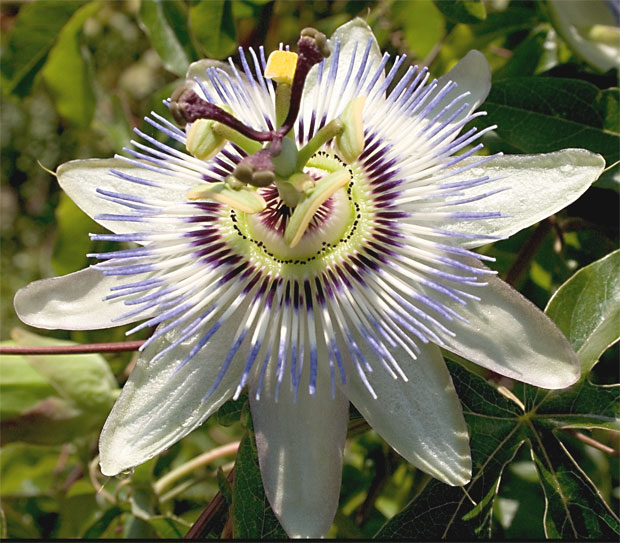In my continuing attempts to better understand Chinese and Japanese poetic traditions, I recently bought David Hinton’s book The Mountain Poems of Meng Hao-jan, a Chinese poet who lived from 689 to 740 C.E.
Hinton’s short but informative introduction clearly places Meng within the “wilderness (literally rivers-and-mountains) tradition that is the heart of Chinese poetry” while also showing how he fits within the Taoist and Ch’an Buddhist tradition:
Rather than subject himself to the strictures of a conventional life, which for the intelligentsia in ancient China meant city work in the government bureaucracy, or perhaps the monastic life of a Ch’an (Zen) Buddhist monk, Meng cultivated the independence of a simple life in his home mountains. There, far from the cultural centers of the time, his poetry developed outside of prevailing literary taste, and in direct response to the mountain landscape he inhabited.
and
Meng was admired not for the bucolic romance of his life, but for the singular way he inhabited the sage philosophical ground shared by all of ancient China’s great poets: the Taoist cosmology described by the originary masters, Lao Tzu and Chuang Tzu. The central concept in their cosmology is Tao, or Way, by which they meant the process (hence, a through which the “ten thousand” living and nonliving things arise and pass away, each emerging out of nothing, flourishing for a time, and finally returning to nothing.
My favorite poem in the eighty-one-page collection is probably:
OVERNIGHT AT KINGFISHER-HUE MONASTERY
IN THE WHOLE-SOUTH MOUNTAINS
At Whole-South Mountain’s Kingfisher-Hue,
fallen rain perfects the failing flare of dusk.
After so long deep in closed-gate meditation,
I take staff in hand, hike up into open vistas,
and soon, following along to a recluse home,
fathom tranquil dwelling’s quiet mystery.
Confucian and Taoist: though different ways,
they merge here in all this forest and cloud,
our two minds joined together in such joy
as we talk and laugh in the day’s last light.
Ready for sleep, we return to high twilight
windows, gaze across distant peaks aflame:
it carries thought back to red-cliff beacons,
brings memories of towering coastal peaks.
With a creek’s windswept sound so crystalline,
who needs the tune of a silent mountain sage?
Although I was first struck by the lines “though different ways,/ they merge here in all this forest and cloud,” which obviously resonates with my own views, I’m sure Hinton’s notes
Whole-South Mountains: just south of the capital, Ch’ang-an, the Whole-South Mountains are legendary in the poetic tradition because Wang Wei wrote his most famous poems at his recluse home there.
… throughout the recluse tradition “gate” often carries the metaphoric sense of “awareness,” that through which the empirical world enters consciousness. This added dimension harks back to a passage in Chapter 52 of the Tao Te Ching, where a kind of meditative practice is described:
 If you block the senses
If you block the senses
 and close the gate,
and close the gate,
 you never struggle.
you never struggle.
 If you open the senses
If you open the senses
 and expand your endeavors,
and expand your endeavors,
 nothing can save you.
nothing can save you.
contributed to my appreciation of the poem, particularly because I found much to admire in my earlier readings of the Tao Te Ching.
Truthfully, though, the poem stands on its own because it captures feelings I’ve experienced when hiking the mountains after spending many hours reading, not too different from the sense of elation I felt recently while hiking the Indian Peaks Wilderness in Colorado. I’m sure I’m not the only person whose deepest thoughts and beliefs can often be found deep in the wilderness.
Another favorite is:
ON RETURNING TO MY MOUNTAINS, FOR
THE CH’AN ABBOT CLARITY-DEEP
I heard the unborn inner pattern young
and always practiced seeing through self,
but we rarely follow mind’s deep impulse:
this life’s rugged path is often full of dust.
Now, back to old canyons in my twilight,
I find myself a neighbor to Clarity-Deep.
Amid forests, rejoicing in kindred spirits,
we sit perfecting the mat’s jewel together,
contemplate this drift on seas of suffering,
teachings lost in a surging swelling world.
Using dharma’s subtle mystery, you guide
us into that crystalline purity of origins,
where karma’s travail ends in tranquility,
mountain-and-forest feelings flourishing.
I come at dawn asking after some answer,
and by dusk our talk touches clarity whole,
like your dark brush exhausting ancient
truths, its words startling human realms.
Compassing a bamboo hut’s empty silence,
herbs and flowers blur winter into spring
here. Cascade-spray flecks cap and robe.
lnkstone and chin perch atop tablerock.
To fathom the erasure of insight, we watch
dusk and dawn composing the wild gulls.
You could almost imagine that Wordsworth must have read the first lines of this poem before writing “Intimations of Immortality” with its famous lines “But trailing clouds of glory do we come/ From God, who is our home:/ Heaven lies about us in our infancy!” if such feelings weren’t almost universal. I sometimes suspect that my love of children is an attempt to recover those lost feelings, magical feelings lost in the everyday “dust” of life that threatens to besmirch our very existence.
Perhaps like the Chinese poets in the wilderness tradition, I return to the mountains and rivers to renew that magic, to recapture that sense of awe that too often has given way to mere boredom and ennui, to experience directly the mystery of life that we spend too much time merely reading about.
Like this:
Like Loading...

